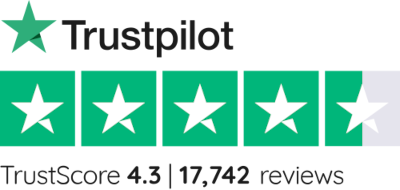How To Start a Home Business
The prospect of starting a home business appeals to many would-be entrepreneurs due to the flexibility, convenience, and creativity.
But dreaming of starting a home business and putting it into practice are two separate things entirely – and many considerations go into making it a successful reality.
This guide is designed to help budding home business owners decide if the lifestyle is right for them, provide essential tips on how to get started – and even offer some popular home business idea inspiration.
What Is a Home Business?
A home business, as its name suggests, is simply a type of business that is run purely out of a person’s home. Much of the appeal of running a home business comes from its flexibility and reduced overhead costs.
Home businesses allow individuals to run their company for less compared with renting or owning an office space and provides services without the need for a separate commercial space.
Home businesses can range from offering freelance services, like consulting or coaching, to selling products like crafts or artisanal creations online.
What Are the Pros and Cons of Starting a Business at Home?
Starting a home business, while more accessible than immediately moving into a commercial space, comes with both advantages and disadvantages. And while the upfront costs may be more attractive, it doesn’t mean the process is easy – and there are plenty of considerations to making it a success.
Below is a list of the potential pros and cons of starting a business at home:
Pros
- Cost Saving: Operating from home negates the need for a commercial working space. This eliminates overhead costs like rent and utilities requirements.
- Flexibility: Those running a home business are free to set their schedule. This can allow for a better work-life balance.
- Convenience: There is no need to commute to work. This increases available work time, saves money, and reduces stress – making the day-to-day process of running a business more enjoyable.
- Tax Benefits: Home-based businesses may qualify for tax deductions related to the use of the home for business purposes.
- Increased Productivity: Working in a familiar environment has the potential to enhance productivity and focus.
Cons
- Poor Separation of Work and Leisure: When working from home, many people feel the urge to catch up on their work in their spare time. This has the potential to negatively affect work-life balance.
- Limited Space: Homes are limited in space compared with dedicated buildings. This may make it difficult to create the necessary room for business activities and keep separate work and leisure spaces.
- Distractions: Home-based businesses can also be susceptible to distractions from family members (especially children), household chores, pets, or personal obligations. This can result in reduced productivity and procrastination.
- Professional Image: Some businesses may struggle to project a professional image when working from a home address.
- Legal & Zoning Restrictions: Certain areas may have zoning restrictions or homeowner association rules that limit or prohibit home-based businesses.
- Isolation: Without the social interaction and networking of a commercial workspace, running a home business can be isolating and lead to periods of burnout.
It’s important to consider all these factors when deciding whether starting a home business is right for you.
How To Choose Your Perfect Home Business?
Often, when choosing a home business, we can be distracted by a wealth of options or drawn towards perceived ‘quick wins’.
However, for a home business to be a success, it requires long-term dedication, passion, and skill. So, it’s important to compare home business ideas against the criteria listed below:
- Do you have the skills to manage the day-to-day operations of the business idea?
- Do your interests and passions align with the idea?
- What is the market demand and profitability of the idea?
- Is the business feasible and scalable?
- What is your lifestyle – how much time can you dedicate to the job?
- What advice have you received from mentors and other industry professionals?
Those able to meet these requirements will be best placed to begin their home business project…
What Is the Process of Starting a Business from Home?
Now we’ve covered the key considerations around starting a home business, it’s time to look at the step-by-step process involved with making a success of your project:
Step 1: Develop Your Business Idea
Every successful business needs a solid idea at its foundation. The best way to construct an idea that works for you is to first and foremost understand yourself and the market.
Developing a strong business idea involves:
- Identifying your skills, interests, and passions.
- Researching market demand and competition.
- Looking for gaps and underserved market niches.
- Considering the target audience.
- Evaluating feasibility, scalability, and profitability.
- Developing a unique value proposition.
Once all these factors have been taken into consideration – usually within a dedicated brainstorming session – you should generate a list of business ideas and pick the one that you are the most passionate about.
Step 2: Make a Business Plan
Once you’ve developed a business idea that you’re passionate about, it’s time to put the idea into practice and develop an effective business plan.
The elements of an effective business plan include:
- A clearly defined mission, vision, and goal.
- A portfolio of valid research that accurately identifies a target audience.
- Products, services, prices, and marketing strategies that are clearly defined.
- A detailed action plan and timeline for implementation.
These elements are best presented in a comprehensive business plan document.
Step 3: Create a Financial Plan
Once a clear business plan has been created, it’s important to consider the financial element. This plan will outline the financial logistics clearly for any relevant parties – such as a bank loan provider or angel investor.
When designing an effective financial plan, make sure to:
- Estimate startup costs, including equipment, supplies and initial marketing expenses.
- Determine your pricing strategy and revenue projections based on market research.
- Develop a budget that includes fixed and variable expenses.
- Monitor and track your financial performance regularly, adjusting the financial plan as needed.
- Consider seeking professional advice or using financial software to assist in your planning and tracking.
Step 4: Consider Public Liability Cover
Sticking with the theme of sensible financial planning, it’s important to consider insurance requirements.
Public liability insurance protects a business against claims made by third parties for injury or property damage caused by the business.
This is a key consideration as it provides financial protection against potential legal costs and compensation claims – safeguarding business assets and reputation.
Public liability cover is especially important for home businesses that offer services that could potentially cause accidents or injury to customers, such as hand-made crafts businesses, home-based food and catering services or dog grooming businesses, for example.
Step 5: Decide on a Name, Business Entity, and Legal Structure
Now the framework for the business has been created, it’s time to decide on the business name, entity and legal structure.
For each of these aspects, it’s important to consider:
- A home business name must be unique, easy to remember, and relevant to your business. Consider conducting a trademark search to avoid future legal conflicts.
- A business entity must be well-researched and suit the business as a whole – taking into consideration the legal structure of the business.
- Consult with a lawyer or legal counsellor to understand the tax implications for each type of legal structure. Consider factors such as personal liability, ease of setup and ongoing compliance requirements.
Step 6: Set Up a Business License & Bank Account
With all legal concerns addressed, it’s important to set up a business license and bank account to properly deal with overheads and taxes – while keeping the business compliant with financial guidelines.
The two most important considerations during this process are:
- To research and understand the licensing requirements specific to your business and location. Contact local authorities or business regulatory agencies for guidance and necessary permits.
- To choose a business bank account that suits the needs of the business. Gather the required documents – including your business license and identification – then compare account features, fees, and benefits before making a decision.
Step 7: Consider Home Business Insurance
Before moving on to the more ‘hands-on’ aspects of starting a home business, it’s important to consider home business insurance.
Home business insurance provides financial and legal coverage for risks associated with operating a business from home, protecting business assets, equipment and inventory, as well as providing liability cover in case of accidents, property damage or lawsuits related to your business activities.
Homeprotect offers home business insurance for full-time, part-time and hobby home businesses, including quick emergency response times, repair guarantees and expert legal advice.

Get a home insurance quote online
Get a quote online in less than 10 minutes*
Step 8: Set Up Your Home Office
Now it’s time to set up your home business space. Working from home can come with several distractions, from friends and family to pets and chores.
Creating a productive environment is essential. So, it’s important to consider these aspects of home-working when designing your business space:
- Choose a dedicated space with minimal distractions.
- Invest in ergonomic furniture and a comfortable workspace (e.g., a comfortable office chair).
- Ensure proper lighting and ventilation for comfort and focus.
- Set up a reliable internet connection.
- Organise your workspace and keep it clutter-free.
- Establish a routine to reinforce a strong work-life balance.
Step 9: Set Up Small Business Accounting
It’s now important to consider how your small business accounting will work. This is key to maintaining a positive financial return and minimising waste, as well as avoiding any tax implications.
Best practices for small business accounting include:
- Separating personal and business finances with a dedicated bank account.
- Using accounting software or hiring a professional accountant to track income, expenses and invoices.
- Keeping organised records of receipts and invoices for tax purposes.
- Regularly reconciling accounts and reviewing financial statements.
- Consulting with an accountant to ensure compliance and maximise tax deductions.
Step 10: Create a Marketing Plan
Marketing is the final aspect of the home business startup process – but it’s far from the least important.
An effective marketing plan helps businesses get the most return from their budget in terms of reach and revenue.
When creating a marketing plan, it’s essential to:
- Identify your target audience and understand their needs.
- Define your unique selling point (USP).
- Develop a strong online presence through social media, website and content marketing.
- Adopt cost-effective digital marketing strategies like email marketing and search engine optimization (SEO).
- Measure and analyse marketing efforts to refine your approach.
What Are Some Profitable Home Business Ideas?
Sometimes we can be overwhelmed by the array of home business ideas – or simply need some inspiration to get the creative juices flowing.
That’s why Homeprotect has put together 10 inspired ideas for a home business (taken from our top 60 UK home business ideas):
- Website Consultant: It’s rare for a business to operate exclusively offline. As a website consultant, you could put your technical know-how to the test and deliver effective website support.
- Childcare: With parents often having to commute to work, it presents an ideal opportunity for a childcare business. However, childminding is a business that deals closely with children, so effective childminding insurance should be a number one priority.
Homeprotect offers effective childminding insurance that includes features tailored to you – protecting your property, business equipment and technology and offering effective cover for legal expenses.
- Tutor: Some students need an extra hand in preparing for their next big test. If you’re a qualified teaching professional looking to work from home, this could be the ideal option.
- Pet Grooming: Pet owners are always looking for affordable grooming options. Taking advantage of this demand could lead to a thriving business.
- Photography: Professional photographers are always in demand, be it corporate events, weddings or professional headshots. This can all be done from home, with a respectable photography studio and a car to make trips to events.
- Home Bakery: Turning your existing kitchen into a professional bakery is a simple idea that could be a real money-maker.
- Hairdresser: Everyone needs a hairdresser, especially one that’s local. Turning a front room into a home hairdressing studio is a good way to make money for qualified hairdressers.
- Alterations, Knitting, Sewing Service: Perhaps you’re skilled in textiles or have an eye for making clothing adjustments. Many people are looking to have their clothes repaired or adjusted. Turning a passion for knitting into a home business can be an effective way to make money.
- Cybersecurity Consultant: Many businesses are slowly waking up to the risks cybercrimes can pose, including loss of revenue, identity theft and the leaking of confidential information. Consultancy from experienced professionals can be provided from the comfort of your home.
- Upholstery or Furniture Repair: Many people have furniture that has weathered the test of time – but isn’t unsalvageable. These people will happily pay for an experienced professional to restore their precious pieces.
Your Questions Answered
While success rates for businesses can vary depending on industry and location, businesses with at least three to four of the following characteristics are more likely to succeed: low startup and operating costs, strong market demand, scalability and growth potential, leveraging personal skills and expertise, effective marketing strategies and target audience identification and adaptability to changing market conditions and trends.
Most small businesses that fail, do so as a result of multiple factors, including poor market research, lack of planning, insufficient capital, poor financial management, ineffective marketing and too much local competition. It’s important to focus heavily on planning the business before attempting to set it up, as this will help business owners avoid these shortfalls.
5k in most currencies can go a long way in funding a new small business idea. Some of the best businesses to start on 5k include e-commerce stores, home-based bakeries or food businesses, personal training and social media management. These are business ideas with low initial overhead costs that are more likely to quickly draw a pool of clientele.
The cheapest home business to start will mainly depend on an individual’s location, free time and available resources. Generally, some of the cheapest home businesses to start include freelance technology services (cybersecurity, graphic design, web development etc.), online reselling or coaching and consulting.





